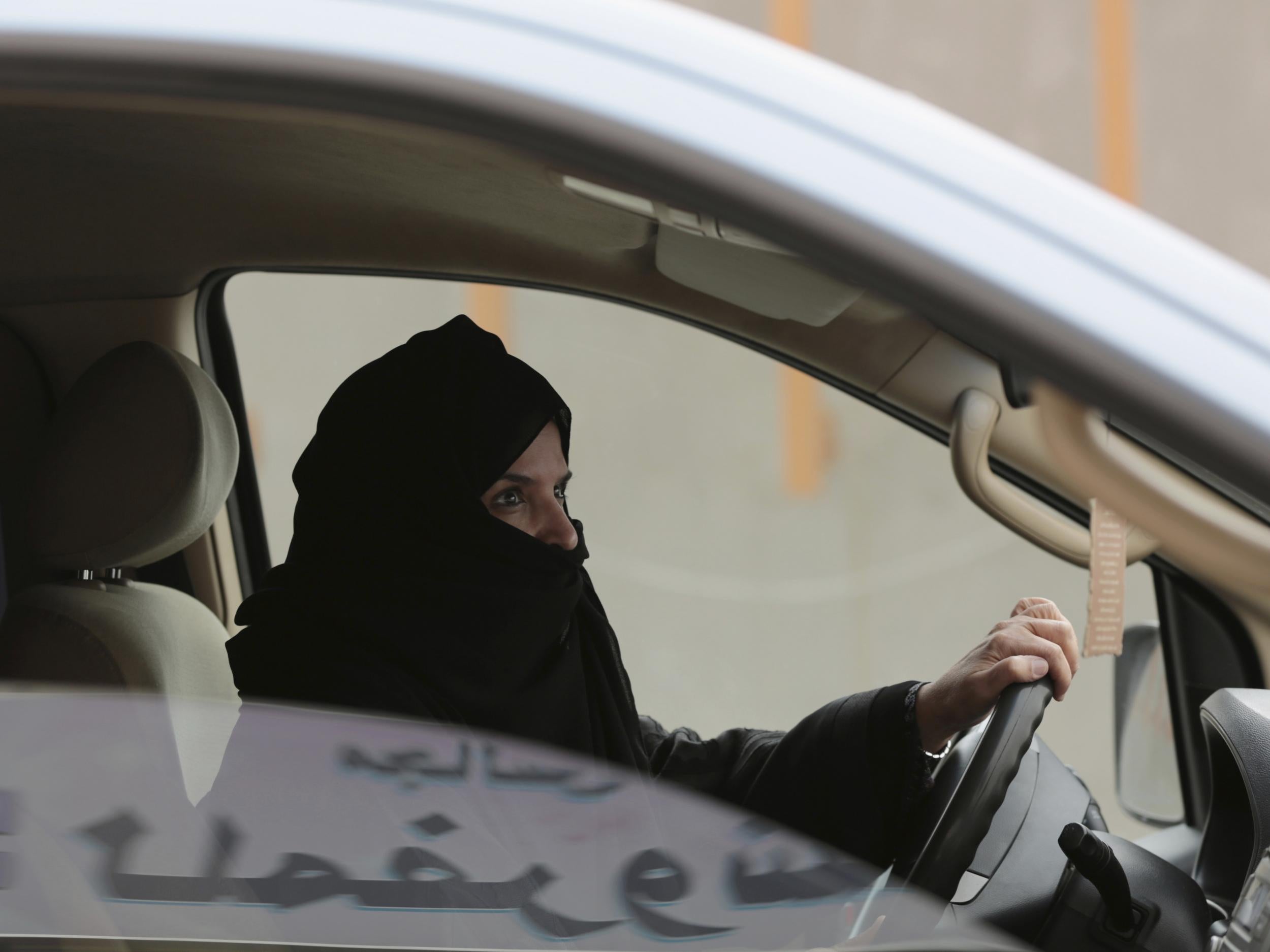Saudi women's rights campaigners detained and branded traitors weeks before driving ban lifted
Activists said all of those arrested by state security had worked in some capacity on women’s rights issues

Your support helps us to tell the story
From reproductive rights to climate change to Big Tech, The Independent is on the ground when the story is developing. Whether it's investigating the financials of Elon Musk's pro-Trump PAC or producing our latest documentary, 'The A Word', which shines a light on the American women fighting for reproductive rights, we know how important it is to parse out the facts from the messaging.
At such a critical moment in US history, we need reporters on the ground. Your donation allows us to keep sending journalists to speak to both sides of the story.
The Independent is trusted by Americans across the entire political spectrum. And unlike many other quality news outlets, we choose not to lock Americans out of our reporting and analysis with paywalls. We believe quality journalism should be available to everyone, paid for by those who can afford it.
Your support makes all the difference.Saudi Arabia has detained seven women’s rights campaigners, accusing them of working with “foreign entities”, weeks before the kingdom lifts a ban on female drivers.
Activists said all of those arrested by state security had worked in some capacity on women’s rights issues, with five of them among the most prominent and outspoken campaigners in the country.
Pro-government media outlets splashed their photos online and in newspapers, accusing them of being traitors.
The campaigners have persistently demanded women should be allowed to drive but stressed the right, which will come into force next month, was only the first step towards equality.
For years, they have also called for an end to less visible forms of discrimination, such as guardianship laws that give male relatives the final say on whether a woman can travel abroad, obtain a passport or marry.
The feminist movement is seen as part of a larger democratic and civil rights push in the kingdom, which remains an absolute monarchy where protests are illegal and all major decision-making rests with the king and his son, Crown Prince Mohammad bin Salman.
Some state-linked media outlets published the names of those detained, which include Loujain al-Hathloul, Aziza al-Yousef, and Eman al-Najfan.
Rights activists, who spoke on condition of anonymity for fear of repercussions, said Madeha al-Ajroush and Aisha al-Manae were also among the seven detained.
Both took part in the first women’s protest movement for the right to drive in 1990, when 50 women were arrested for driving and lost their passports and their jobs.
Several of the women detained this week were professors at state-run universities and are mothers or grandmothers.
The interior ministry did not name those arrested, but said the group was being investigated for communicating with “foreign entities”, working to recruit people in sensitive government positions and providing money to foreign circles with the aim of destabilising and harming the kingdom.
The arrests come just six weeks before Saudi Arabia is due to lift the world’s only ban on women driving.
When the kingdom issued its royal decree last year announcing that women would be allowed to drive in 2018, rights activists were contacted by the royal court and warned against giving interviews to the media or speaking out on social media.
Following the warnings, some women left the country for a period of time and others stopped voicing their opinions on Twitter.
As activists were pressured into silence, Saudi Arabia’s 32-year-old heir to the throne stepped forth, positioning himself as the force behind the kingdom’s reforms.
According to Human Rights Watch, however, the prince’s so-called reform campaign “has been a frenzy of fear for genuine Saudi reformers who dare to advocate publicly for human rights or women’s empowerment”.
“The message is clear that anyone expressing scepticism about the crown prince’s rights agenda faces time in jail,” said Sarah Leah Whitson, Middle East director at Human Rights Watch.
Last year, Prince Mohammad oversaw the arrests of dozens of writers, intellectuals and moderate clerics who were perceived as critics of his foreign policies.
He also led an unprecedented shakedown of top princes and businessmen, who were forced to hand over significant portions of their wealth in exchange for their freedom as part of a purported anti-corruption campaign.
In an interview with CBS in March, he said he was “absolutely” sending a message through these arrests that there was “a new sheriff in town”.
Activists said writer Mohammad al-Rabea and lawyer Ibrahim al-Mudaimigh, two men who worked to support women’s rights campaigners, were also among the seven detained.
Mr Mudaimigh defended Ms Hathloul in court when she was detained in late 2014 for more than 70 days for her online criticism of the government and for attempting to bring attention to the driving ban by driving from neighbouring United Arab Emirates into Saudi Arabia.
Those familiar with the arrests say Ms Hathloul was forcibly taken by security forces earlier this year from the UAE, where she was residing, to the kingdom.
Activists said several women’s rights campaigners had also been banned from travelling abroad in recent weeks.
Immediately after news of the arrests broke, pro-government Twitter accounts were branding the activists treasonous under an Arabic hashtag, describing them as traitors for foreign embassies.
The pro-government SaudiNews50 Twitter account, which has 11.5 million followers, splashed images of those arrested with red stamps reading “traitor” over their face. The account said “history spits in the face of the country’s traitors”.
The state-linked Al-Jazirah newspaper published on its front page a photo of Ms Hathloul and Ms Yousef under a headline describing them as citizens who betrayed the nation.
Join our commenting forum
Join thought-provoking conversations, follow other Independent readers and see their replies
Comments